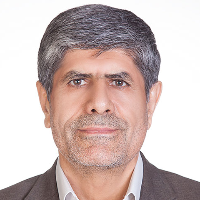The impact of welfare expenditure of the government on politico-social stability through a human development channel: Iran and selected countries
Political and social stability is an important component of optimum management in the public sector economy and, in turn, a key element in good governance. This key component of good governance and the basic element of optimum management of the public sector economy have a significant relationship with education and health in different societies. At the same time, education and health are fundamental elements for creating human capital and human development. Political and social stability provides a pacific environment for economic progress. This is because these elements encompass the conditions under which the law is ruling, sufficient security is prevailing in different societies, and economic activists benefit from enough freedom. As social and political stabilities are not separable, they are used interchangeably in this article, and, for brevity, they are referred to as political stability. In other words, political stability in this article means political-social stability. Not surprisingly, countries that benefit from more political and social stability do possess more economic progress. As there is a significant relationship between political and social stability on one hand and human development on the other, reinforcing human development and human capital can have an influential role in promoting political and social stability. Consequently, governments can redirect their welfare expenditures to improve health and education that eventually provide enough ground for better political and social stability. Accordingly, one main goal of this article is to investigate the impact of public expenditure in education and health on political and social stability.
By using econometric and statistical methods, this study analyzes the factors affecting political and social stability through human development. It investigates the impact of public expenditure on welfare (especially those expenditures devoted to health and education) and political and social stability for selected countries. The selected countries include 34 developed countries, so-called OECD countries on one hand and 17 Middle Easten and North African countries, so-called MENA member countries. The MENA countries include Iran as well. The time period for this study is 1998 through 2020. By using a simultaneous equation system, this article explores the outcome of public expenditure in health and education on political and social stability in the mentioned countries. Moreover, and for a more realistic analysis, the other variables which influence political and social stability are addressed too. These variables include inflation rate, unemployment rate, inequality, and per capita income. Meanwhile, the role of democracy is discussed. For more scrutiny in this work, the negative correlation of investment and property rights is taken into consideration in the final analysis. Before econometric analysis, the dependency of some of the above variables on one hand and the political stability on the other are investigated statistically.
The result of the analysis in this study stresses some basic issues. It firstly, indicates that there is a positive and significant relationship between the welfare expenditures of the government, especially those dedicated to health and education, and political stability. Secondly, inflation rate, unemployment rate and inequality have negative and significant relationships with political stability. This paper presents the claims of new public sector theories versus the old public sector theories. The former claim is that the role of investing in health and education on political stability is much greater than concentrating on military power and security-oriented power to create political stability. According to the old theories of the public sector, however, the military power and concentrating on security orientations create political stability.
The significant relationship of the welfare expenditure of government devoted to health and education with political stability is the main finding of this research. The negative relationship of inflation and unemployment with political stability is another paramount finding of this work. By taking into consideration the first finding of this article, governments can improve health and education and create a significant amount of political stability. Also, by targeting a low inflation rate and decreasing the unemployment rate, they can promote the political and social stability. They can eventually boost the welfare of their citizens in the long run.
- حق عضویت دریافتی صرف حمایت از نشریات عضو و نگهداری، تکمیل و توسعه مگیران میشود.
- پرداخت حق اشتراک و دانلود مقالات اجازه بازنشر آن در سایر رسانههای چاپی و دیجیتال را به کاربر نمیدهد.


